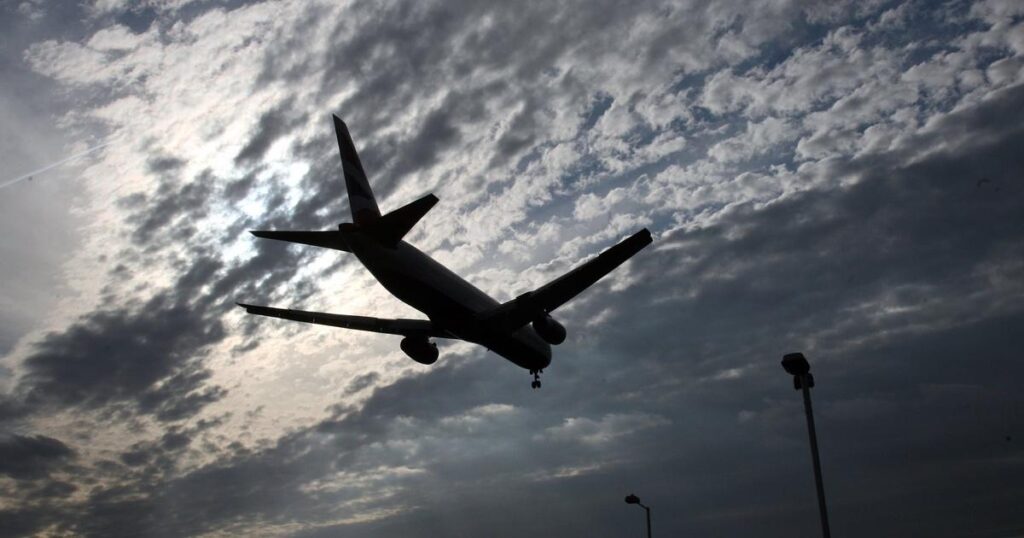JEFF BENNETT: Weeks before the holiday travel season gets into full swing, new airline refund rules have gone into effect across the United States.
These could mean major changes in how and when tens of millions of Americans receive compensation for things like flight delays and mishandled baggage.
It also eliminated haggling, communication breakdowns and all sorts of passenger complaints.
To break them down, we’re joined by Brian Kelly, founder of The Points Guy.
That’s a popular travel website.
Thank you for joining us.
Brian Kelly, Founder, The Points Guy: Thank you for inviting me.
JEFF BENNETT: So, Brian, these rules were first announced by the Biden administration in April, because previously airlines had set their own policies regarding flight delays and cancellations.
Please help us understand the changes.
Brian Kelly: Yes, these changes are great for consumers because they will make it clearer when they will receive a full refund.
Now, what’s happening is that instead of refunds, airlines are giving vouchers to consumers.
Current regulations state that if a flight is delayed for more than three hours domestically or six hours internationally, or if the airline cancels the flight for any reason, consumers are obligated to refund the money back to their original payment method. has been done.
In other words, cash is king.
So this is definitely a benefit for consumers, as it’s much better to get a refund than a coupon that eventually expires.
Jeff Bennett: So this is automatically refunded?
Brian Kelly: If you choose not to rehouse, these should happen automatically.
Most airline websites now offer the option of taking the next flight or alternative route.
If you don’t do that and say, “I’m canceling this trip,” you should automatically get it within seven business days.
If you don’t see it, please request it from your airline.
And if they don’t provide it, you can file a DOT complaint, preferably automatically.
Jeff Bennett: So what are the rules for situations like baggage mishandling or situations where you pay for Wi-Fi on a plane and it doesn’t work?
Brian Kelly: Yes, the new rules introduced were intended to protect consumers every time they pay for additional fees that are becoming increasingly common, such as seat upgrades or checked baggage.
If your checked baggage does not arrive in the country within 12 hours, your baggage fee will be refunded.
Previously, it was up to the airline to decide whether to do so.
This is in addition to the airline’s compensation for lost baggage.
Each airline has different policies regarding refunds for lost baggage.
Also, be sure to check with your credit card company. This is because many credit card companies will refund your money for lost packages.
However, if the Wi-Fi doesn’t work, or if the airline changes your flight and adds an extra connection (which happens often), you don’t have to accept.
It’s great that if you have booked a direct flight and try to change, you are obligated to get a full refund.
Jeff Bennett: How have airlines responded to these new rules?
Brian Kelly: Well, there was a lot of grumbling.
There’s a lot to this, so I thought airlines might try to protest the new rules.
But so far we haven’t seen anything like that.
My professional opinion is that airlines are waiting to see what happens on election day. Because if there is a change in government, we can expect intense lobbying to water down or completely repeal these new regulations. Next year, someone will be empowered to run the DOT.
Jeff Bennett: And while you’re here, Brian, I’d like to ask you about something else: Last month, the Department of Transportation launched an investigation into airline loyalty programs, reducing the amount of points earned. and investigated the issue of hidden fees.
Why are airlines making it harder to earn and use loyalty points?
Brian Kelly: Interestingly, airlines are actually making it easier to earn points.
There are more credit card benefits than ever before.
This issue involves redeeming points.
Specifically, the four major U.S. airlines continue to increase the number of miles required, which can be very confusing for consumers.
What are these miles actually worth?
As such, DOT is currently conducting research and fact-finding to require airlines to post the minimum value that the average consumer can expect to earn from their frequent flyer programs and to allow them to earn from their frequent flyer programs. There is a possibility that new regulations will be developed to mandate this. Not only will we notify you of any major changes to the program, but you can also make changes at any time. This is the situation today.
JEFF BENNETT: Brian Kelly, founder of the popular travel website The Points Guy himself, thanks for joining us.
Brian Kelly: Thanks for having me.

